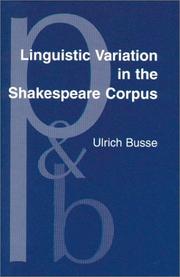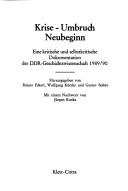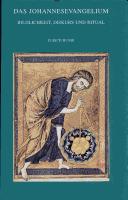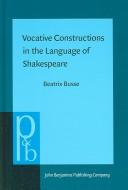| Listing 1 - 10 of 1061 | << page >> |
Sort by
|
Book
ISBN: 0190212365 0190212373 0190212381 0190920823 Year: 2020 Publisher: Oxford University Press
Abstract | Keywords | Export | Availability | Bookmark
 Loading...
Loading...Choose an application
- Reference Manager
- EndNote
- RefWorks (Direct export to RefWorks)
Book
ISBN: 9783825232801 3825232808 Year: 2009 Publisher: Paderborn Fink
Abstract | Keywords | Export | Availability | Bookmark
 Loading...
Loading...Choose an application
- Reference Manager
- EndNote
- RefWorks (Direct export to RefWorks)
Lexicology. Semantics --- Sémantique --- Guides pratiques et mémentos.
Book
ISBN: 9783110269406 9783110269451 3110269406 9783110269468 3110269465 3110269457 9786613627094 1280597267 3110482126 Year: 2012 Publisher: Berlin De Gruyter
Abstract | Keywords | Export | Availability | Bookmark
 Loading...
Loading...Choose an application
- Reference Manager
- EndNote
- RefWorks (Direct export to RefWorks)
Das Frame-Modell ist eine der wichtigsten Neuentwicklungen in der Sprachtheorie der letzten Jahrzehnte und zu einem Bindeglied zwischen Linguistik, Kognitionspsychologie, allgemeiner Kognitionswissenschaft und KI-Forschung geworden. In dieser handbuchartigen Einführung werden die wichtigsten theoretischen Grundlagen der Frame-Semantik erstmals aus linguistischer Perspektive umfassend dargestellt, diskutiert und weiterentwickelt. Neben Begründern wie Fillmore, Minsky, Schank/Abelson und wichtigen theoretischen Vorläufer wie Bartlett werden neuere Konzeptionen (wie Barsalou) ebenso behandelt wie Weiterentwicklungen in der angewandten linguistischen Forschung. Im Anschluss an die einführende Darstellung und Diskussion frame-theoretischer Ansätze und Forschungspraktiken wird ein umfassendes integratives Arbeitsmodell zur Frame-Semantik vorgestellt und werden die verschiedenen linguistischen Anwendungsmöglichkeiten einer Frame-Analyse demonstriert. Das Buch schließt eine empfindliche Lücke auf dem Buchmarkt, da bis jetzt weder im deutschsprachigen Bereich noch in der internationalen Literatur eine zusammenfassende Darstellung und Einführung in diese Forschungsrichtung und theoretische Perspektive der Semantik existiert.
Lexicology. Semantics --- Psycholinguistics --- #KVHA:Taalkunde --- #KVHA:Semantiek --- #KVHA:Frame semantics --- Cognitive grammar. --- Semantics. --- Frame-Theorie. --- Kognitive Linguistik. --- Psycholinguistik. --- Semantik. --- Frame-Semantik --- Frame-Semantik. --- Cognitive grammar --- Semantics --- Formal semantics --- Semasiology --- Semiology (Semantics) --- Comparative linguistics --- Information theory --- Language and languages --- Lexicology --- Meaning (Psychology) --- Cognitive linguistics --- Grammar, Comparative and general --- Cognitive Science. --- Knowledge. --- Linguistics.

ISBN: 9027253463 1588112802 9786612160967 1282160966 9027296197 9789027296191 9781588112804 Year: 2002 Publisher: Amsterdam Benjamins
Abstract | Keywords | Export | Availability | Bookmark
 Loading...
Loading...Choose an application
- Reference Manager
- EndNote
- RefWorks (Direct export to RefWorks)
This study investigates the morpho-syntactic variability of the second person pronouns in the Shakespeare Corpus, seeking to elucidate the factors that underlie their choice. The major part of the work is devoted to analyzing the variation between you and thou, but it also includes chapters that deal with the variation between thy and thine and between ye and you. Methodologically, the study makes use of descriptive statistics, but incorporates both quantitative and qualitative features, drawing in particular on research methods recently developed within the fields of corpus linguistics, socio-historical linguistics and historical pragmatics. By making comparisons to other corpora on Early Modern English the work does not only contribute to Shakespeare studies, but on a broader scale also to language change by providing new and more detailed insights into the mechanisms that have led to a restructuring of the pronoun paradigm in the Early Modern period.
Historical linguistics --- English language --- Grammar --- Shakespeare, William --- LANGUAGE ARTS & DISCIPLINES --- Linguistics / General --- English Literature --- English --- Languages & Literatures --- Germanic languages --- Pronoun --- Variation --- Pronoun. --- Variation. --- Shakespeare, William, --- Language.

ISBN: 360891448X 9783608914481 Year: 1987 Publisher: Stuttgart KLett-Cotta
Abstract | Keywords | Export | Availability | Bookmark
 Loading...
Loading...Choose an application
- Reference Manager
- EndNote
- RefWorks (Direct export to RefWorks)
Lexicology. Semantics --- Historical linguistics --- Semantics, Historical. --- Historical lexicology --- Semantics, Historical --- Historical semantics

ISBN: 9058672441 904291100X 287723617X 9789058672445 9782877236171 9789042911000 Year: 2002 Volume: 162 Publisher: Leuven: Peeters,
Abstract | Keywords | Export | Availability | Bookmark
 Loading...
Loading...Choose an application
- Reference Manager
- EndNote
- RefWorks (Direct export to RefWorks)
Bible NT. Gospels. John --- Metaphor in the Bible. --- Jesus Christ --- Person and offices --- Bible --- Criticism, interpretation, etc --- Language, style --- 226.5 --- Academic collection --- Evangelie volgens Johannes --- Metaphor in the Bible --- Christ --- Cristo --- Jezus Chrystus --- Jesus Cristo --- Jesus, --- Jezus --- Christ, Jesus --- Yeh-su --- Masīḥ --- Khristos --- Gesù --- Christo --- Yeshua --- Chrystus --- Gesú Cristo --- Ježíš --- Isa, --- Nabi Isa --- Isa Al-Masih --- Al-Masih, Isa --- Masih, Isa Al --- -Jesus, --- Jesucristo --- Yesu --- Yeh-su Chi-tu --- Iēsous --- Iēsous Christos --- Iēsous, --- Kʻristos --- Hisus Kʻristos --- Christos --- Jesuo --- Yeshuʻa ben Yosef --- Yeshua ben Yoseph --- Iisus --- Iisus Khristos --- Jeschua ben Joseph --- Ieso Kriʻste --- Yesus --- Kristus --- ישו --- ישו הנוצרי --- ישו הנצרי --- ישוע --- ישוע בן יוסף --- المسيح --- مسيح --- يسوع المسيح --- 耶稣 --- 耶稣基督 --- 예수그리스도 --- Jíizis --- Yéshoua --- Iėsu̇s --- Khrist Iėsu̇s --- عيسىٰ --- Person and offices. --- Bible. --- Jean (Book of the New Testament) --- Johanisi (Book of the New Testament) --- Johannesevangelium --- John (Book of the New Testament) --- Yohan pogŭm --- Yohane den (Book of the New Testament) --- Yūḥannā (Book of the New Testament) --- Criticism, interpretation, etc. --- Language, style. --- عيسىٰ --- Ioganaĭ (Book of the New Testament) --- Иоганай (Book of the New Testament) --- Jesus Christ - Person and offices

ISBN: 9027253935 9789027253934 9786612155253 1282155253 9027293139 9789027293138 Year: 2006 Publisher: Amsterdam Benjamins
Abstract | Keywords | Export | Availability | Bookmark
 Loading...
Loading...Choose an application
- Reference Manager
- EndNote
- RefWorks (Direct export to RefWorks)
English language --- Forms of address in literature. --- Address, Forms of. --- Shakespeare, William, --- Language. --- Grammar --- Shakespeare, William --- 802.0 --- 820 --- 820 Engelse literatuur --- Engelse literatuur --- 802.0 Engels. Engelse taalkunde --- Engels. Engelse taalkunde --- Forms of address in literature --- Germanic languages --- Address, Forms of --- Šekspir, Vil'jam --- Shakespear, William, --- Shakspeare, William, --- Šekʻspiri, Uiliam, --- Saixpēr, Gouilliam, --- Shakspere, William, --- Shikisbīr, Wilyam, --- Szekspir, Wiliam, --- Šekspyras, --- Shekspir, Vilʹi︠a︡m, --- Šekspir, Viljem, --- Tsikinya-chaka, --- Sha-shih-pi-ya, --- Shashibiya, --- Sheḳspir, Ṿilyam, --- Shaḳspir, Ṿilyam, --- Syeiksŭpʻio, --- Shekspir, V. --- Szekspir, William, --- Shakespeare, Guglielmo, --- Shake-speare, William, --- Sha-ō, --- Şekspir, --- Shekspir, Uiliam, --- Shekspir, U. --- Šekspir, Vilijam, --- Ṣēkspiyar, Viliyam, --- Shakspir, --- Shekspyr, Vyli︠e︡m, --- Şekspir, Velyam, --- Ṣēkspiyar, Villiyam, --- Shēkʻspʻiyr, Vlilliam, --- Ṣēkspiyar, --- Ṣēkspiyar Mahākavi, --- Ṣēkspiyar Mahākaviya, --- Sheḳspier, Ṿilyam, --- Shēkʻspir, --- Shakespeare, --- Śeksper, --- Шекспир, Вильям, --- Шекспир, Уильям, --- שייקספיר, וויליאם, --- שייקספיר, וו., --- שיקספיר, וויליאם --- שיקספיר, ויליאם --- שיקספיר, ויליאם, --- שכספיר, ויליאם, --- שכספיר, וילים, --- שכספיר, ו׳ --- שעפקספיר, וויליאם, --- שעקספיער, וויליאם --- שעקספיער, וויליאם, --- שעקספיער, ווילליאם --- שעקספיער, וו., --- שעקספיר --- שעקספיר, וו --- שעקספיר, וויליאם, --- שעקספיר, וויליאמ --- שעקספיר, ווילליאם --- שעקספיר, ווילליאם, --- שעקספיר, וו., --- שעקספיר, װיליאם, --- שעקספיר, װילליאם, --- שעקספיר, װ., --- שעקספער --- שעקספער, וויליאמ --- שקספיר --- שקספיר, וו --- שקספיר, וויליאם --- שקספיר, וויליאם, --- שקספיר, ווילים, --- שקספיר, וילאם --- שקספיר, ויליאם --- שקספיר, ויליאם, --- שקספיר, ויליים, --- שקספיר, וילים --- שקספיר, וילים, --- شاكسبير، وليم --- شاكسپير، وليم --- شكسبير، وليام --- شكسبير، وليم --- شكسبير، وليم، --- شكسبير، و. --- شكسپير، وليم --- شكسپير، ويليام --- شيكسبير، وليام --- شيكسبير، وليام.، --- شيكسبير، وليم --- شکسبير، وليم --- وليم شکسبير --- 沙士北亞威廉姆, --- 沙士比亞威廉姆, --- 莎士比亞威廉姆, --- 莎士比亞威廉, --- 莎士比亞, --- 820 English literature. Literature in English --- English literature. Literature in English
Book
ISBN: 345102201X 9783451022012 Year: 2003 Volume: 201 Publisher: Freiburg: Herder,
Abstract | Keywords | Export | Availability | Bookmark
 Loading...
Loading...Choose an application
- Reference Manager
- EndNote
- RefWorks (Direct export to RefWorks)
Book
ISSN: 1255183X ISBN: 9782859446239 2859446230 2859448098 Year: 2009 Volume: 26 Publisher: Paris: Publications de la Sorbonne,
Abstract | Keywords | Export | Availability | Bookmark
 Loading...
Loading...Choose an application
- Reference Manager
- EndNote
- RefWorks (Direct export to RefWorks)
Ni philosophe du sujet ni philosophe du moi, Spinoza, on le sait, n'accorde pas à l'homme le statut de substance, mais de mode. Cette désubstantialisation s'accompagne d'une apparente indifférence à l'égard du problème classique de la différence spécifique de l'homme par rapport à l'animal. Dès lors on peut s'interroger sur l'étrange silence de l'Éthique au sujet d'une définition précise de l'essence humaine. À rebours des commentateurs qui ont essayé de reconstituer cette définition à partir des indications de l'auteur, Julien Busse cherche de manière originale à comprendre les raisons pour lesquelles Spinoza n'a pas jugé bon d'en fournir une. Plutôt que la présence, il pense l'absence de définition de l'essence humaine pour montrer qu'elle ne tient pas à une carence, mais qu'elle obéit à une impossibilité. C'est sur la nécessité de l'absence d'une telle définition que Julien Busse invite à se pencher pour en analyser aussi bien les causes que les effets.
Humanity. --- Humanité (Morale) --- Spinoza, Benedictus de, --- Criticism and interpretation. --- Humanité (Morale) --- Humanity --- Philosophy & Religion --- Philosophy --- philosophie --- interprétation --- critique --- humanité
Book
ISBN: 3460039116 9783460039117 Year: 1978 Volume: 91 Publisher: Stuttgart: KBW,
Abstract | Keywords | Export | Availability | Bookmark
 Loading...
Loading...Choose an application
- Reference Manager
- EndNote
- RefWorks (Direct export to RefWorks)
Jesus Christ --- -History of doctrines --- -Jesus Christ --- History of doctrines --- Bible --- Criticism, interpretation, etc --- 226.4 --- #GGSB: Exegese N.T. --- #GGSB: Synoptici --- #GGSB: Tekstkritiek N.T. --- #GROL:SEMI-22<08> Stut 91 --- Evangelie volgens Lucas --- -Christ --- Cristo --- Jezus Chrystus --- Jesus Cristo --- Jesus, --- Jezus --- Christ, Jesus --- Yeh-su --- Masīḥ --- Khristos --- Gesù --- Christo --- Yeshua --- Chrystus --- Gesú Cristo --- Ježíš --- Isa, --- Nabi Isa --- Isa Al-Masih --- Al-Masih, Isa --- Masih, Isa Al --- -Jesus, --- Jesucristo --- Yesu --- Yeh-su Chi-tu --- Iēsous --- Iēsous Christos --- Iēsous, --- Kʻristos --- Hisus Kʻristos --- Christos --- Jesuo --- Yeshuʻa ben Yosef --- Yeshua ben Yoseph --- Iisus --- Iisus Khristos --- Jeschua ben Joseph --- Ieso Kriʻste --- Yesus --- Kristus --- ישו --- ישו הנוצרי --- ישו הנצרי --- ישוע --- ישוע בן יוסף --- المسيح --- مسيح --- يسوع المسيح --- 耶稣 --- 耶稣基督 --- 예수그리스도 --- Jíizis --- Yéshoua --- Iėsu̇s --- Khrist Iėsu̇s --- عيسىٰ --- -226.4 --- #GGSB: Exegese N.T --- #GGSB: Tekstkritiek N.T --- Christ --- Bible. --- Criticism, interpretation, etc. --- عيسىٰ --- -#GGSB: Exegese N.T --- Exegese N.T --- Synoptici --- Tekstkritiek N.T --- -Jesus Christ - History of doctrines - Early church, ca. 30-600
| Listing 1 - 10 of 1061 | << page >> |
Sort by
|

 Search
Search Feedback
Feedback About UniCat
About UniCat  Help
Help News
News